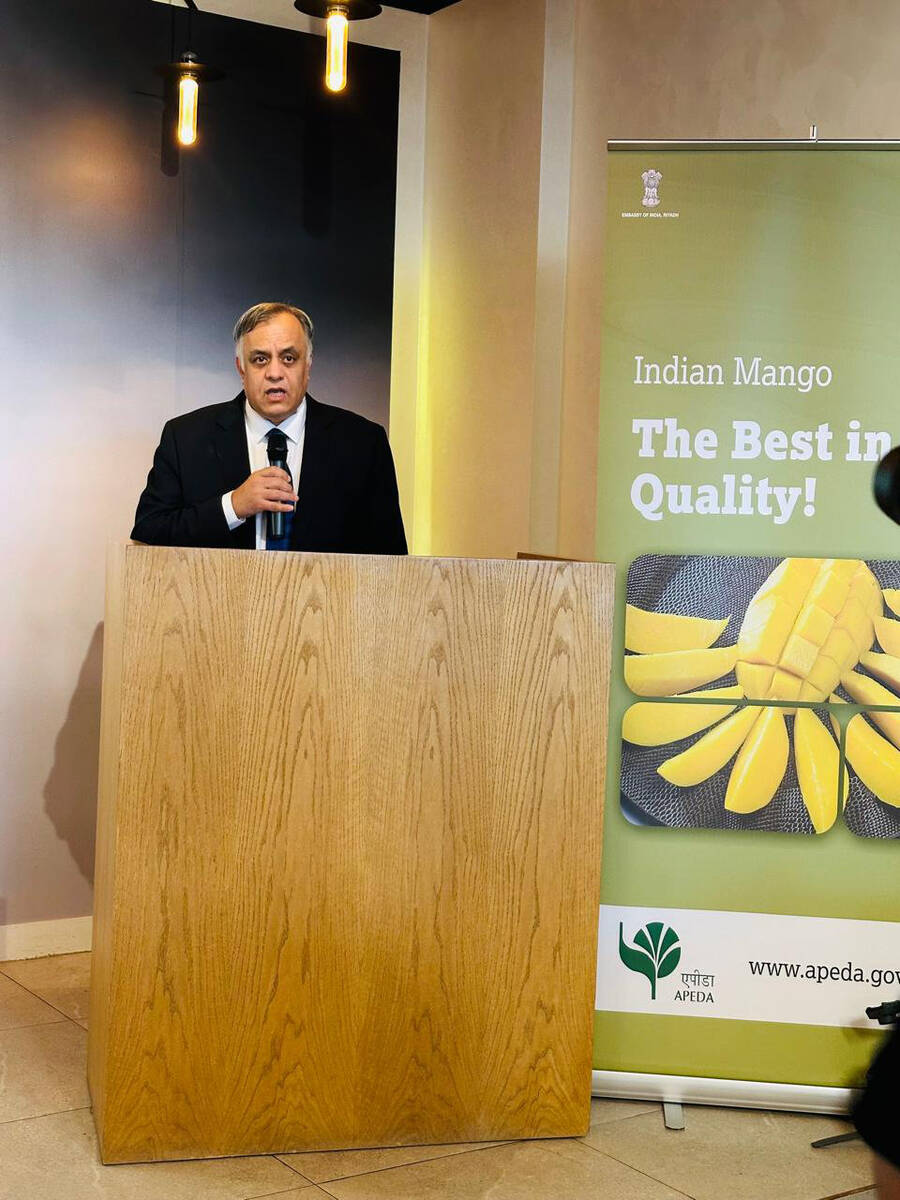The Embassy of India in Riyadh, in collaboration with the Agriculture and Processed Food Export Development Authority, recently organized a culinary festival titled “Indian Mango Indulgence” at Tresor Modern Indian Restaurant.
The event showcased the rich heritage and diverse flavors of Indian mangoes, celebrated through a unique menu crafted by renowned celebrity chef, Sanjay Thakur.
“This event is all about celebrating the harmony between Indian mangoes and Saudi ingredients,” the chef said. “By blending these rich flavors, we create a unique culinary experience that honors both cultures.”
Ambassador Suhel Ajaz Khan opened the event, noting the global renown of Indian mangoes.

Indian Ambassador Suhel Ajaz Khan speaks at the launch of the week-long Indian mango festival at Lulu Hypermarket. (Supplied)
He said Saudi Arabia is a significant importer of the fruit, ensuring the availability of premium varieties for local consumers.
The menu featured an array of dishes, including mango butter chicken and Goan mango fish curry, blending Indian culinary traditions with Saudi ingredients such as dates and Madinah mint.
A standout feature of the event was the salad corner, which introduced a fusion of mangoes and millets, aligning with the UN designation of 2023 as the “International Year of Millets.” This innovative approach not only celebrated mangoes but also promoted gluten-free, nutritious grains.

The event showcased the rich heritage and diverse flavors of Indian mangoes, celebrated through a unique menu crafted by renowned celebrity chef, Sanjay Thakur. (Supplied)
India is the world’s largest producer of mangoes, boasting over 1,200 local varieties and accounting for 45 percent of global production. The event served as a platform to showcase various regional mango varieties, including the renowned Alphonso, as well as Geographical Indication-tagged options like Fazli and Rataul.
In conjunction with this event, a week-long Indian mango festival was launched at Lulu Hypermarket, further promoting the rich diversity of Indian mangoes to the Saudi market. APEDA representatives engaged in meetings with major Saudi retail chains to explore expanding the availability of these premium products.



























